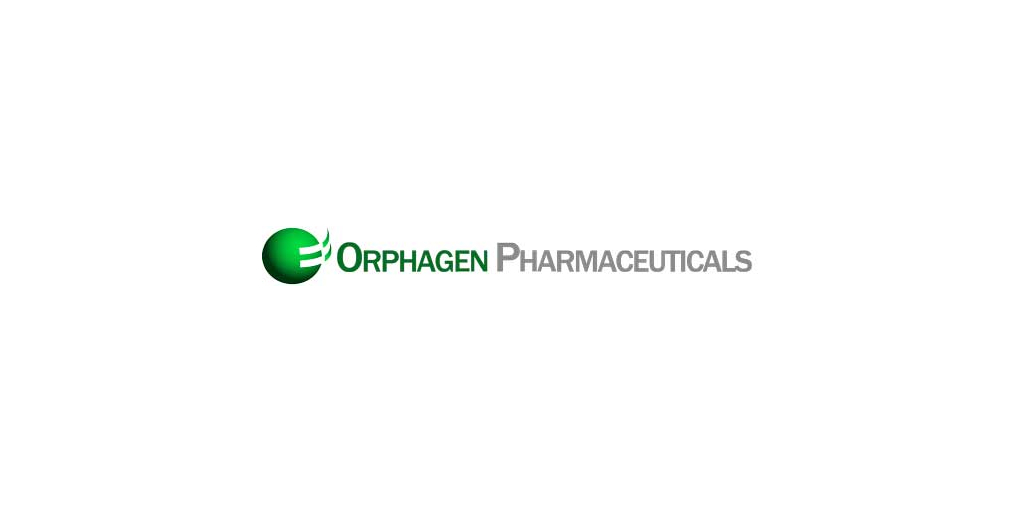Funding to support preclinical development of Orphagen’s lead IBD candidate, OR-812, a first-in-class, small molecule inhibitor of the retinoic acid receptor alpha (RARα)
SAN DIEGO--(BUSINESS WIRE)--Orphagen Pharmaceuticals, Inc., a biotech company pioneering the screening, discovery, and development of small molecule ligands that modulate orphan or unexplored members of the nuclear receptor family, today announced an award of up to $1.7 million from the National Institute of Diabetes and Digestive and Kidney Diseases (NIDDK) through the Small Business Innovation Research (SBIR) program. The funding will support the preclinical development of the small molecule OR-812, a selective nuclear receptor antagonist, as a novel oral therapeutic for treatment of ulcerative colitis and Crohn’s disease, two forms of inflammatory bowel disease (IBD).
“This award recognizes the innovative preclinical work that Orphagen has done to characterize retinoic acid receptor alpha (RARα) as a target for inhibiting autoimmune inflammation of the intestinal mucosa,” said Scott Thacher, Ph.D., CEO of Orphagen. “We’ll use this funding from the NIDDK to further evaluate the properties of our lead compound, OR-812, a potent and selective RARα antagonist with promising preclinical efficacy, safety, and pharmacokinetics for the treatment of IBD.”
“Innovative therapeutics for autoimmune diseases of the intestinal mucosa have largely been dominated by injectable drugs. Our small molecule, OR-812, has the potential to offer IBD patients a novel oral medicine with a differentiated mechanism of action from current therapies,” added Dr. Thacher.
Up to two million Americans suffer from inflammatory bowel disease (IBD), a lifelong, debilitating inflammatory condition of the gut in which modulation of the immune system is the major therapeutic strategy. However, despite development of novel therapies including monoclonal antibodies to TNFα and IL-12/IL-23, and inhibitors of T cell gut homing such as vedolizumab and ozanimod, less than half of patients experience a sustained therapeutic benefit.
The research leading to this award grows out of investigations at Orphagen into unexplored members of the nuclear receptor family, which has been the source of major drugs in cancer, metabolic disease, and inflammation. One of these unexplored targets, RARα, has a central role in the intestinal immune response and regulates the induction of homing markers that drive activated T cells to migrate to the intestinal mucosa. In vivo pharmacological studies at Orphagen have shown that RARα antagonists will, with very high potency, block the induction of the gut homing integrin α4β7, the target for vedolizumab, a major inflammatory bowel disease drug. Induction of a second important gut homing receptor, CCR9, is also blocked by OR-812 during T cell activation.
Potential for efficacy in this drug class was supported by studies carried out in the laboratory of Professor Casey Weaver, the Leonard H. Robinson Endowed Chair in Pathology at the University of Alabama, Birmingham, a noted pioneer in mucosal immunology. His group showed that an RARα antagonist will inhibit α4β7 expression and cause a significant reduction in accumulation of inflammatory T cells in the lamina propria of the colon of Citrobacter rodentium-infected mice, a model of gut mucosal inflammation resembling IBD. Separately, OR-812 markedly suppressed gut mucosal inflammation and erosion in a T cell transfer model of colitis in mouse, which is known to respond to most major classes of drug for IBD. Preliminary safety studies carried out at Orphagen are consistent with a robust safety margin for OR-812.
Dr. Weaver commented, “Globally, there is a pressing need for new therapies as the incidence of IBD continues to increase. Selectively blocking the action of retinoic acid through RARα is clearly one promising approach.”
About Crohn’s Disease and Ulcerative Colitis
Inflammatory bowel disease (IBD) is an umbrella term used to describe disorders, including Crohn’s disease (CD) and ulcerative colitis (UC), that involve chronic inflammation of the gastrointestinal tract. UC is an idiopathic, chronic disorder of the large intestine mucosa, characterized by a continuous stretch of inflammation in the innermost lining of the colon wall. Half of UC patients suffer debilitating disease flares 4-5 times a year, significantly affecting their quality of life. Patients may recover after a single attack, while others require frequent hospitalizations and surgery. CD differs from UC in that it can affect any part of the intestinal tract, and it occurs in all layers of the intestinal wall within localized regions of inflammation scattered throughout the GI tract.
About Orphagen Pharmaceuticals
Orphagen unlocks the power of orphan nuclear receptors. Our scientists have discovered small molecule ligands to these largely unexplored drug targets. Starting with an agnostic approach to therapeutic area, we explore proprietary lead molecules with potential in autoimmune disease and oncology. Orphagen successfully partnered its first program for ROR-gamma antagonists in autoimmune disease with a mid-size pharmaceutical company ahead of all competitors in the field. Funding from our partnerships and other non-dilutive sources, including federal grants, has allowed Orphagen to advance its proprietary first-in-class drug discovery programs, including OR-812 for inflammatory bowel disease. For more info, visit www.orphagen.com.
Contacts
Company Contact: Scott Thacher, Ph.D., CEO, Orphagen, smt@orphagen.com
Media Contact: Jessica Yingling, Ph.D., Little Dog Communications Inc., jessica@litldog.com, +1.858.344.8091






